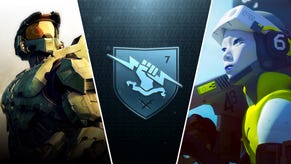343 Industries Boss Bonnie Ross on Her Long Career at Microsoft and Avoiding Crunch on Halo Infinite
The Academy of Interactive Arts and Sciences' latest Hall of Fame inductee chats with us at DICE Summit about her career and 343's future.
This article first appeared on USgamer, a partner publication of VG247. Some content, such as this article, has been migrated to VG247 for posterity after USgamer's closure - but it has not been edited or further vetted by the VG247 team.
Since The Academy of Interactive Arts and Sciences began its Hall of Fame inductions in 1998, only two women have joined the ranks of the annually added men: the late designer and programmer Danielle Bunten Berry (inducted posthumously in 2007) and this year's addition, 343 boss Bonnie Ross.
"When I look at the list of people that have received awards before, I mean they're pretty amazing people in the industry," Ross tells me just hours before she'd take the stage at the annual DICE Awards to accept her inductee trophy. "So it's a huge honor, but it's a bit overwhelming."
Ross is very humble for someone of her experience. She started at Microsoft in 1994, at first just on operating systems. But she's come a long way from those beginnings. Today, she's corporate vice president of Microsoft and the head of 343 Industries, Microsoft's first-party studio responsible for Halo. She's a vocal champion for diversity in the industry, and was even featured in the "She Can STEM" ad campaign to encourage young women to get into technology. And now, she's the second woman to be honored in the AIAS' Hall of Fame in its two-plus decades. At DICE Summit 2019, she told us all about her career, and what's next for 343.
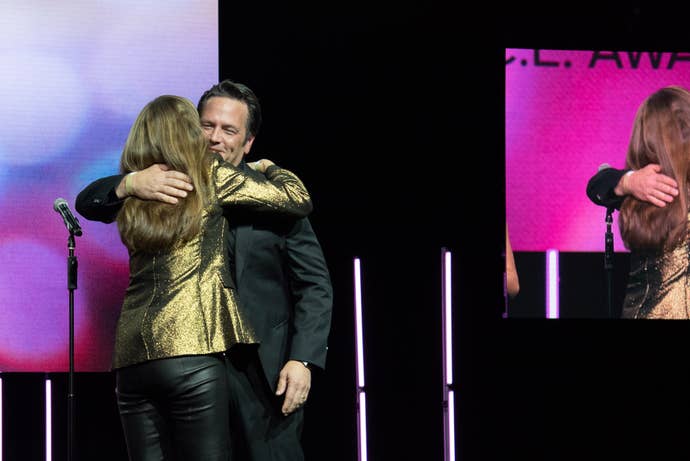
You've been with Microsoft at some capacity since the early 90s. Can you tell me a bit about what your experience has been like over the years? Like how has the industry changed, your experiences…
Yeah. I was a college hire and I started working on the systems side of operating systems. I came to Microsoft for technology but I think that after a few years, I couldn't really talk about what I was doing with my family because no one really understood what operating systems were. Microsoft decided to get into sports games. I played girls basketball and I was the most qualified for a job for a lead producer role on our new sports group. So I worked on a basketball game, and that's how I got in. I never planned on staying, just because I didn't really think it was a career. But after I was there for my first year, it kind of clicked that gaming is technology empowering art. And I think for me, it finally put together two pieces of a puzzle and like why I was in technology. So for me, it was this amazing lightbulb that went off in my head.
343 is obviously known as the Halo studio now, how has that experience been like, growing a studio with an established IP already?
When we took over, I looked at it as like we had an established franchise with a start-up company. The two were incredibly interesting and challenging to manage because we needed to keep Halo going, but we then didn't have a team and we had to build that team up. For Halo 4, we had to start from scratch and we hired people from over 55 different companies, both in the games industry and the entertainment film industry. And bringing a bunch of people together that had never worked together on a game that they were passionate about as a fan and working in an engine they had never worked on before was incredibly challenging, but also really bonding for the team that came together because I think everyone looked at it as we can't let the franchise down. You know, it's huge shoes to fill, walking into that franchise. But I'm really proud of what the team has done.
Halo's one of the rare video game series that is like way more than just a game series, because there are books and talk of TV shows and now the Halo Outpost Tour this summer. So what has that experience been like in growing out Halo beyond just video games?
Yeah, for me, I was working on Zoo Tycoon and Fusion Frenzy when we shipped the first Halo. Eric Nylund wrote the book The Fall of Reach mainly because we were concerned about whether Halo would resonate or not in a sci-fi world that no one knew about in a first-person shooter. So I read the book first, and the book is about Master Chief's origin story: about 75 six-year-olds being kidnapped and created into Spartans. So for me, it has always been a transmedia franchise, and I read the book before I played the game which made it that much deeper for me.
So in starting 343, it was really important to me that we really enriched the worlds. To me Halo is a universe worthy of devotion, and you can tell so many stories. So we started from an early point, specifically with Frank O'Connor, who came from Bungie, really kind of creating a canvas on a bunch of different stories, connecting all the broken fiction and then really establishing the framework that we could tell different stories in, which enables us to do books, TV, movies, we've done animated series, and then now Halo Outpost Discovery, which should be pretty cool.
Can you tell me a bit more about Halo Outpost, because that seems like a pretty unique venture to just tour with all this Halo-related stuff. How'd that idea come about?
We have gotten approached for the last 10 years, on creating an amusement park; someone wanted to do a Master Chief roller coaster. And at E3, I think it was three years ago or four years ago, we did a HoloLens experience for Halo 5. Then we also did a VR experience, just a little demo experience for the store, and I think for both of those we realized that that's kind of... I look at VR as a ways away, but it's really great for location-based entertainment and how you bring people together to experience the universe in a different way. So I think that kind of inspired us. And then a company approached us and we worked together until we came up with an idea that we thought we would greenlight, and that's Halo Outpost Discovery.
So one of the big topics in the industry this year has been crunch and unhealthy work conditions across studios. What has 343 done to combat crunch and bad work practices?
Yeah, with Halo 4, just given the nature of being a brand new team that had not worked on the Halo engine before, we did put the team through a really bad crunch. Obviously we had a ton of feedback that that was not a great thing. And one of the reasons is that the Halo engine is a very technical engine, which means it's a lot harder for artists and designers to get content into the game. So we promised the team that for Halo 5, we would do the work. And we did a ton of work to improve the engine along the way, but we promised them that we would do the work to really create tools and pipeline that was easy to work in so that we could help prevent crunch.
And we didn't do that for Halo 5. It ended up being a bigger game than we thought it was and we didn't have time. When we shipped Halo 5, it definitely was a point of, I think, crisis with the team. Crisis might be not the right word, but it was a point where the team was like, 'You promised us and we're not doing crunch again.' And they were right.
That's why we've taken a bit more time—usually it's three years between every Halo—to really do the investment in the engine and the tools and pipeline, and we're still working on it. But we showed it at E3 last year, and it is basically trying to create an environment that we can build the game better, faster, and ideally, you know, prevent crunch. I think there will always be with any game, I think there will be times where we need to work longer hours. But I think that we need to be really deliberate with that because it's not fair to the team, and the team doesn't want to do it. And so we're trying to work out how do we create the best environment to hopefully mitigate that.
Obviously you can't talk about Halo Infinite that much, but going into the future what do you see 343 pursuing in addition to healthier workflow?
As far as games you mean? So we are heavily invested in when we look at our legacy because I think so many people still love to play the old Halo. So we've been doing a ton of work on the Master Chief Collection and kind of changing the way that we engage with fans and players and really kind of bringing them into the dialogue on like what do they want. I think that today fans expect a different type of engagement. They want to be part of it. So we're definitely trying to pave the way there with Master Chief Collection and Halo 5. And as we work on Infinite, we'll also be engaging more with fans along the way to make sure that we are creating something that resonates, and that we have time to be agile and make sure that we're creating the best experience.
The Master Chief Collection in particular has been an interesting thing because it had a rough launch, but in the years since it's been focused on and improved and made to be like a very strong collection. So what propelled that?
Yeah, I think that the MCC when we launched and we pretty much fell down, that was not anything we expected and it took us way longer than we thought to fix it. So we definitely let the fans down and that was something that really weighed heavily on the team. It is a pretty complex product given the amount of engines in there, but when there was an opportunity when we were doing Scorpio, it for us was the right opportunity to crack it open again and actually move it all to the most recent SDK, which would help our multiplayer. When we announced that we were doing that, we really did want it to be a journey with the fans and so we engaged them to help prioritize things they wanted, what was missing, what bugs they wanted us to fix. And we're still going. I think since September we've had 11 releases. [343 chief of staff Rob Semsey:] It's nearly 30 in total.
And since you're now a Hall of Fame inductee, looking back on your career, what were some high points, or moments you remember really clearly?
I would definitely say the launch of the first Xbox. My team was working on Fusion Frenzy, which is one of the first titles for Xbox. That whole process of starting on the PC side, and I think I was on PC for five or six years before we shipped the first Xbox, and actually being part of that transition. Even the cultural transition of understanding what it really is to be a console gaming team. I was incredibly lucky to be part of that.
Then also realizing all the mistakes we made with the first one, on not doing the best box for the developers and having a pretty huge box. I think with the time that we had on the 360, I'm just really proud of what we did with making it such a great development platform to work on. So I think just being part of that and being part of first party was pretty amazing.
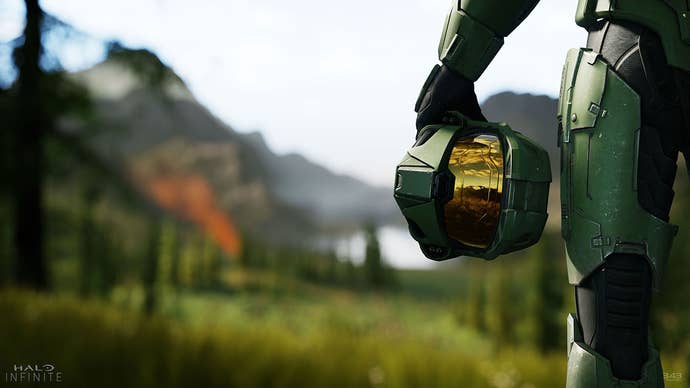
What would you say have been some of the biggest challenges across your career? Not low point per se, but like learning experiences?
I would say starting 343 was probably one of the biggest challenges I've ever had. It has been the most rewarding, but even when we first started, it's not like people wanted Bungie to stop making Halo. So I think just coming in and earning the right to do Halo and building a team with a bunch of people that had never worked together I think would be some of the most challenging things I've ever done, but also the most rewarding.
I mean, when we released our certification for Halo 4, I think it was such an amazing moment. The E3 before that where we didn't know if people would like what we did or not, I think for the team seeing that actually we could build Halo, that was really rewarding but also I'd say really challenging.
There's just, like all along the way I think there's so many times you have failures, or you have to cancel games. Obviously there's been lots of challenges, but I think a lot of it is just getting teams to work together. Working in the gaming industry, nothing's a sure bet. It is about whether it comes together or not, and not all games come together.
Can you talk about any of those canceled projects?
Well in one that we canceled with Halo, we've got a partnership with Mega Bloks which is kind of like Legos. And we wanted to make a more, kinda like what Lego does, where the games are both fun for adults and they're also a great experience for a younger audience. We really felt like after we did the anime anthology Halo Legends that it could be an opportunity, and people in the studio were really passionate about doing something. So we put together them working on this, it was codenamed Haggar, and it was kind of a whimsical Master Chief running around. We didn't cancel it for a while because all of us wanted it so badly, and I think that's also the challenge with cancelling. It's so hard to cancel because so much work has been put in, but ultimately we canceled that one. It always comes back up in the studio, like would we do that again?
I would say that another one for me would be when we, this is a long time ago, that we had three platformers going on at the same time: Voodoo Vince, Tork, and Psychonauts, and I was running the studio that was working with Tim Schafer on Psychonauts, [which Microsoft was set to publish]. And I love Psychonauts, it's one of my all-time favorite games. When you talk about things I'm, say, disappointed with, we had to make a decision that we were only going to go forward with one of them. And I made the decision, the recommendation to go with Psychonauts. I ultimately didn't get my recommendation for that, and I would say that was probably the hardest thing ever. Luckily it shipped and it's an iconic game, but for me, that was the hardest thing, especially because Tim Schafer is an icon to me and to have to do that was probably one of the harder things I've had to do.
Is there anything else you want to say to wrap things up about 343 or your career?
I would just say that I'm really proud of how much change we've had in the last five years as an industry. We have a ton more work to do, but you're seeing more diverse characters, you're seeing more diversity on stages like E3 and presentations. You're seeing different stories or stories with different perspectives that you wouldn't see before. I think it's a really great time for new people coming in the industry and, you know, what's changing and creating a more diverse palette of experiences. I'm really proud of how far we've gotten, and also like we have a ton more work but it feels like a really good time for people and women to be in the industry.
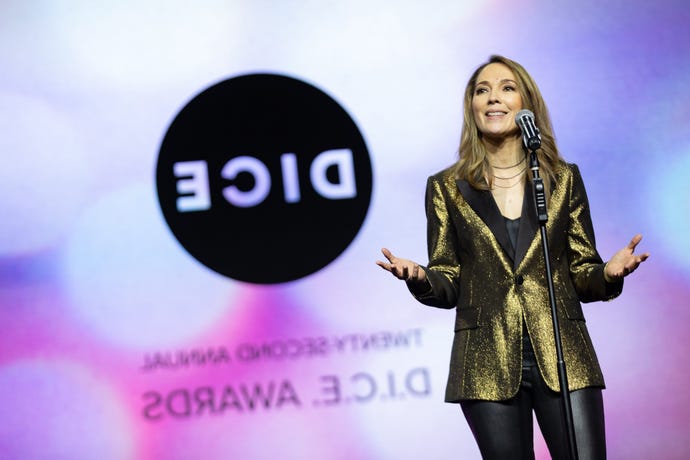


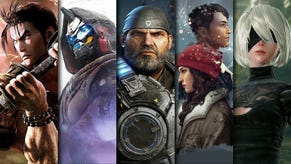

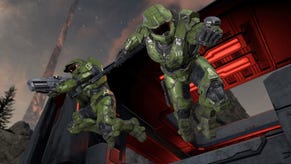
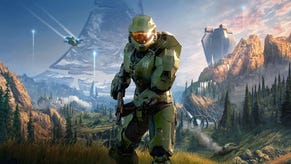
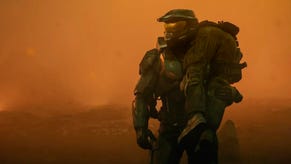
_LPhE1zP.jpg?width=291&height=164&fit=crop&quality=80&format=jpg&auto=webp)
-(1).jpg?width=291&height=164&fit=crop&quality=80&format=jpg&auto=webp)
